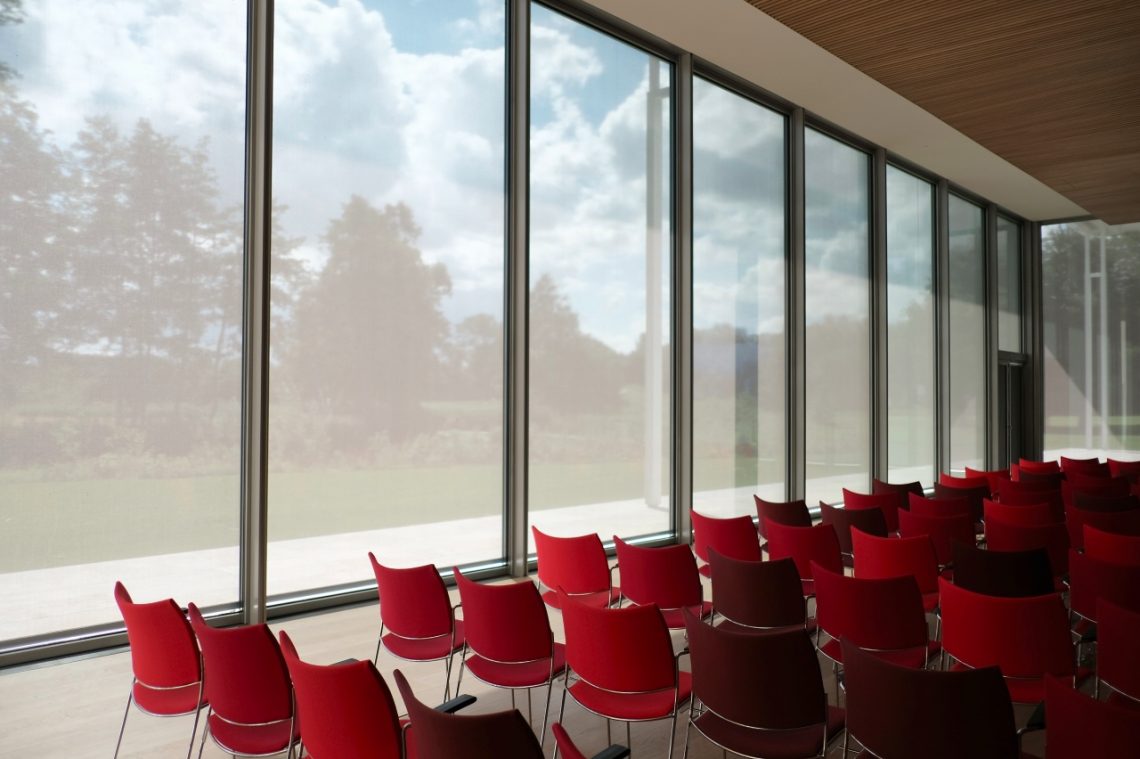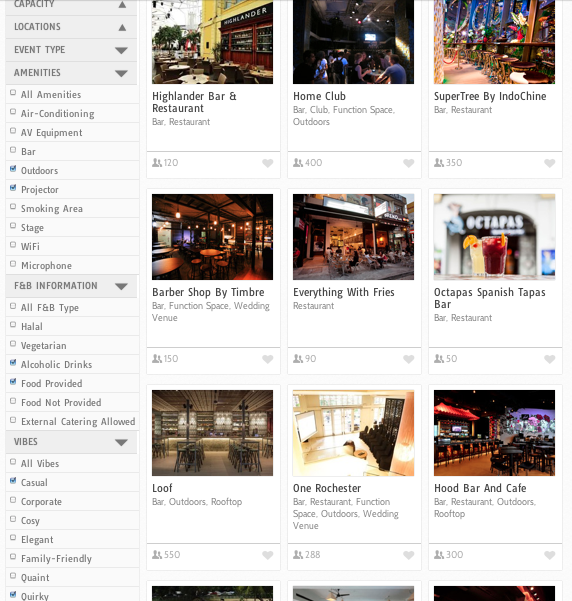Picking out a venue is probably the most complex phase of event planning. There are tons of logistics involved, and the rest of the planning can’t even really begin until you have a venue reserved. Given that venue rental is usually the single highest overhead cost, this is not a step where you want to cut corners.
With a little diligent planning, you can find the perfect venue that meets all the parameters for your event setup.
1. Scheduling Flexibility
Is there any leeway for your proposed event date? Will you be willing to settle for an alternative date, perhaps a week or two before or after your preferred date? Flexibility is important because venues are often booked months in advance. Venues are especially difficult to secure during the weekends (particularly Saturday). Weekdays obviously are not popular days for hosting an event, but you can consider hosting it on a weekday evening.
When it comes to venue availability, your best bet of finding vacancy will be the weekdays and months without notable holidays (e.g. January, May, August). In other words, you’ll much more likely be able to secure a facility if renting on a Wednesday in January than, say, a Saturday in December. Not only that, but rates are typically cheaper during slow months when bookings are at a low point.
2. Venue Capacity
For safety purposes, every venue has a maximum occupancy limit. It is pivotal that you have an accurate count of everyone expected to be in attendance; this includes guests, staffers, sponsors, guest speakers, etc. You will likely have to submit your expected turnout number to the venue administrator. Some venues will impose a fine if actual turnout exceeds the number you submitted. This is usually the case if the venue has its own staff members working your event because it translates to more work on their end.
You also don’t want the venue to feel too crowded with guests spilling over outside. As a rule of thumb, try to aim for a venue that can accommodate about twice the number of the expected turnout. In other words, if you’re expecting 400 people, then aim for a venue designed for a 700-900 seating.
3. Venue Staff
Most venues will have their own staff present for the event. This includes custodians, food servers, security personnel, etc. How knowledgeable is the staff? Obviously, they will unlikely be familiar with your industry and demographic consumers, but that’s okay.
They’re job is to just ensure that the basic essentials (e.g. taking out the trash) are taken care of. You should know in advance how many venue staff members will be present. It also helps to have several of their phone numbers on hand. This way, you can easily phone them if their services are needed. This way, you don’t have to run around like a headless chicken trying to locate the janitor to clean up a spill.
4. Food/Catering
Some venues have their own food service that you may opt to include as part of the rental package. Be aware, though, that venues that include their own catering often require renters to select from their service. If you choose to acquire food from elsewhere, you may have to pay an additional fee.
Should you decide to go with outside catering, you will have to enquire if the venue has a kitchen and whether your staffers would be allowed access. The food after all, has to be kept at certain temperatures in order to comply with food service regulations.
5. Venue Location
If your company serves a local demographic, then the venue should ideally be within the city or the next town. While you want a presentable venue, your guests will not appreciate having to commute long-distance.
Also, if you have visitors coming from out of town or even overseas, will they have easy access to the venue? Are there affordable lodging centers nearby? How about shuttle or city buses that can take them directly from the hotel to the venue?
6. Layout
What’s the layout like? Is it just a big empty all-purpose room? Depending on the event, you may need more than just a gymnasium or loft. If your event will be hosting multiple workshops or meetings, then you will need multiple rooms. Will there be a presentation? If so, then does the venue have a lecture hall, or at the very least a stage with a podium?
In addition, you also have to look into the technical setup. Are there enough electrical outlets for your technical equipment? Does the venue have overhead lights with adjustable dim settings? How’s the sound system like?
7. Ambiance
With enough décor and proper setup, most venues can take on the proper ambiance for your specific event. Nevertheless, it wouldn’t hurt for the venue to have a specific backdrop. If you’re hosting a formal gala/black tie event for high profile B2B clients, for instance, then a high school gymnasium probably isn’t going to cut it.
In such an instance, you will need a venue with a garden, balcony, a bar for cocktails, and so forth.
8. Price
With any company event, you need to stay within budget or else you are going to get an earful from your finance department. Being that the venue is the single biggest overhead cost, this is the one area where it is all too easy to overspend.
Look, it’s understandable that you want to wow your guests with a lavish 14th-century venue or a venue frequented by celebrities, but you have to ask yourself whether that wow factor is worth the few extra thousand dollars.
Ultimately, your guests are there for the event’s material; while a lavish venue will certainly impress them, it is far from the deciding factor that influences their overall perception. Find the happy medium between price and ambiance when picking out a venue.
9. Accommodations
Is the venue access-friendly for people with special needs? Is there a ramp adjacent to the staircase? How about an elevator, braille, or handicap parking? Speaking of parking, is there ample parking space? Is parking so limited that you have to encourage guests to carpool?
Restrooms are another huge aspect; one of the most common venue complaints among guests is having to wait in a long line to use the restroom. As a rule of thumb, there should be at least four restroom stalls (of each gender) for every 100 guests.

Take Your Time with the Venue Selection
The venue layout largely influences most of the planning process. Picking out a facility is a process where you really need to be a nitpicky organizer because very little else can begin falling into place until you have a venue confirmed.
This is a guest post by Dan McCarthy, Event Manager at JD Parties, an event management company based in the UK. Dan has five years of event project management under his belt. He has worked on many successful events, and currently he shares his knowledge by writing on the company blog. Follow him on Twitter @DanCarthy2.





